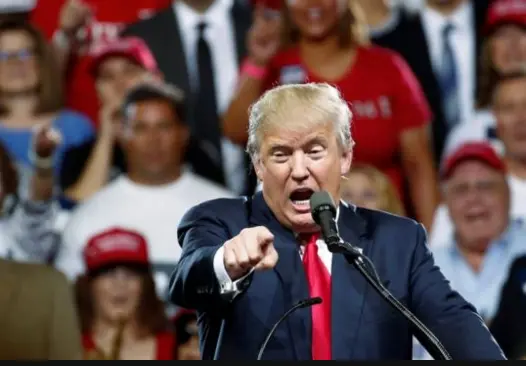The presumptive Republican candidate in the US presidential election, Donald Trump, has suggested the country should consider using profiling to combat crime.
Mr Trump made the remarks when asked if he supported more profiling of Muslims in the US, in the context of last week's shooting at an Orlando gay club.
Profiling uses ethnicity, race and religion to determine whether a person has or is likely to commit crimes.
Critics say it could alienate Muslims.
In an interview with CBS, Mr Trump said other countries had "successfully" adopted the measure.
"I hate the concept of profiling but we have to start using common sense," he said.
"I think profiling is something that we're going to have to start thinking about as a country... It's not the worst thing to do."
Mr Trump has stepped up his rhetoric since a gunman, New York-born Omar Mateen, killed 49 people at a night club in Orlando, in the worst mass shooting in recent US history.
The attacker claimed allegiance to so-called Islamic State as he carried out the massacre, but US officials believe he was "self-radicalized".
In the wake of the attack, Mr Trump called for a ban to people from all countries with a history of terrorism against the US.
He had previously expressed support for a temporary ban on foreign Muslims entering the country.
In the interview, the Republican also repeated a call for the Muslim community to report suspicious activities and reiterated his support for more scrutiny of mosques.
He said this could resemble a controversial surveillance programme in New York City that was shut down following lawsuits and complaints.
His proposals have been heavily criticised by some fellow Republicans and also by political opponents and campaigners.
In a separate interview, Attorney General Loretta Lynch said such measures could backfire by severing contacts with the Muslim community.
"It's very important for us to maintain our contacts within the Muslim community," she said in an interview on CNN.
"Because, often, individuals, if they're from that community and they're being radicalised, their friends and family members will see it first. They will see activity first. And we want that information to come to us."
 简体中文
简体中文

